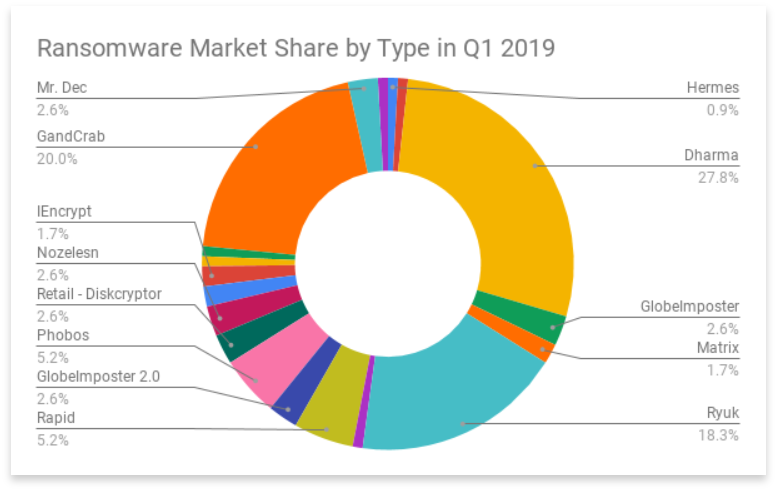Malware Crypto Ransoms Rose By Almost 90% in Q1: Report
The average payout for ransomware attacks rose dramatically in the first quarter of 2019 – largely due to one variant called Ryuk.
:format(jpg)/cloudfront-us-east-1.images.arcpublishing.com/coindesk/XF5HK5BCMFHQBG43QVXFY6ND6U.jpg)
The average cryptocurrency payout for ransomware attacks rose dramatically in the first quarter of 2019, according to a firm that helps victims pay ransoms.
In its quarterly report, Coveware said that, while in Q4 last year the average ransom was $6,733, it shot up by 89 percent to $12,762 in the first three months of 2019.
The rapid hike in crypto demanded comes thanks to the increasing prevalence of more expensive strains of ransomware – which encrypt victims' files and demand a payment in cryptocurrency to unlock them – such as Ryuk, Bitpaymer, and Iencrypt, according to the firm.
"These types of ransomware are predominantly used in bespoke targeted attacks on larger enterprise targets," Coveware said.
The Ryuk ransomware strain in particular has shot up in prevalence. In Q1, in first and second place, respectively, Dharma and Crysis held their leading positions on the market share table (below), while Ryuk is now in third place. That's a notable climb, since it was not a top-three placer in the previous quarter. 
Ryuk is also targeting larger organizations than other variants, the report says. Not only that but it is demanding far higher ransoms. For example, Dharma requires an average ransom of $9,742, while Ryuk demands $286,556 on average.
Bitcoin is still, and is likely to continue to be, the most popular cryptocurrency demanded by bad actors deploying ransomware, Coveware adds, although privacy coins like dash make up around 2 percent of demands.
Malware image via Shutterstock
:format(jpg)/downloads.coindesk.com/arc/failsafe/user/1x1.png)